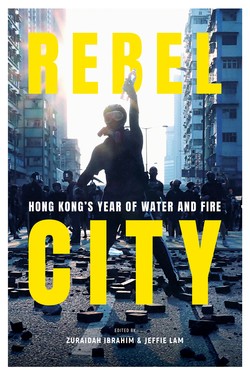Читать книгу Rebel City - South China Morning Post Team - Страница 45
На сайте Литреса книга снята с продажи.
The cost of embracing violence
ОглавлениеEven as authorities toughened their stance and meted out harsher reprisals against protesters, supporters were confident the movement would not peter out. Clinical psychologist Christian Chan, an associate professor at the University of Hong Kong’s psychology department, said a combination of psychological factors was working to perpetuate the feeling of inter-group conflict on both sides.
“Young people perceive a visible common enemy and internalize a messianic mission of defending Hong Kong, their home. Fighting along with your band of brothers and sisters, in a clear and present danger, is inherently risky, but also inherently thrilling,” he said. “Similarly, police officers are also determined to defend their comrades who were injured and assaulted. They also think that they possess the noble calling of defending Hong Kong, their home.”
But Chan said the range of weapons the police had seized since the end of 2019 – including homemade bombs and explosives – warranted greater public concern. Hong Kong police handled nearly 190 explosives cases throughout the year – nearly two-thirds more than the year before – amid what they saw as an “almost unprecedented” bombing campaign.
In another troubling sign, in January 2020, police arrested 10 members of a radical anti-government group on suspicion of conspiracy to manufacture explosives and possession of explosives, drugs, and other instruments. They included two students, a kindergarten teacher, a barista and two unemployed men. All 10 were also arrested for illegal assembly during a protest rally on New Year’s Day.
“The fact that there hasn’t been wider concern is very dangerous because it suggests that the norm – or what is generally perceived as acceptable – is shifting. People are habituating to violence,” Chan said.
He said some netizens might also mistake the expressions of solidarity online as the rest of society supporting violence. “This is a form of heuristics that may not reflect reality; they do not realize that the voice expressed in the Reddit-like site is not necessarily an accurate representation of the society at large,” he warned.
Even veteran activist Avery Ng Man-yuen of the League of Social Democrats, whose party is known for its street actions and antics, did not believe that violence was the solution. (The only “violence” Ng himself ever committed was hurling a tuna sandwich at former city leader Leung Chun-ying.) The increasing use of force would lead not only to more protesters paying a price, he said, but the movement could also be depleted if other supporters retreated out of fear they might be arrested next.
“And after all, the protesters and the force are in an asymmetrical position – officers are equipped with bullets but protesters only have bricks,” he said. “Injuries eventually would be on our side.”
Ng also warned that well-meaning donations of food coupons or battle gear were actually putting more protesters at risk of injury and arrest. “It’s a dilemma,” he said, as such efforts were equal to condoning the violence.
Pro-democracy lawmakers confessed to facing a similar Catch-22 situation. While psychologist Chan expressed disappointment with politicians and intellectuals who lacked the courage to speak out against violence, several democrats defended their reticence. They had no choice if they wanted to retain ties with the protesters and hope to be of some influence, they insisted.
Democratic Party lawmaker Lam Cheuk-ting alluded to their delicate relationship. “The hardcores might consider our situation when they mull over their next steps as long as we are in the same boat. We could still exchange views,” he explained. “Once we part ways, they would no longer see us as their allies and would not consider our difficulties anymore. It could be even more dangerous.”
Staying united was the only way forward, he argued, citing the camp’s landslide victory in the district council elections in November as proof that the public endorsed the alliance. But another pandemocratic lawmaker, who spoke on condition of anonymity, admitted that such an approach could lead to more dangerous incidents in future. The situation was a ticking time bomb, he warned.
However, Cheng did not think the radicals had the organization or resources to be an underground resistance force, as feared by doomsayers who warned they were becoming like the Irish Republican Army. A more likely scenario, given their strategy of fluidity and unity, is that protesters’ actions will wax and wane, depending on circumstances. He did not see any easy resolution ahead.
Student activist turned teacher Anna Chan said her heart ached each time she saw students risking their future to join the clashes. A year on, the young protesters still believed in a now-or-never chance to fight for their cause. Many believed this would be the denouement of their demand for democracy, and appeared to be prepared to risk everything. Chan, who has one student who is a hard-core radical, said: “I totally understand them. They fear they will regret it for the rest of their lives if they do not speak up now.”
Chan confessed to feeling helpless at not being able to help them. For now, she said, she had made a pledge to herself not to shy away from difficult issues in her classes so that the Hong Kong spirit could endure. “The city needs more people with kind hearts and critical minds so one day they can change the world. I have only full love for Hongkongers and their spirit to stand up for their rights.”
— With reporting by Phila Siu
